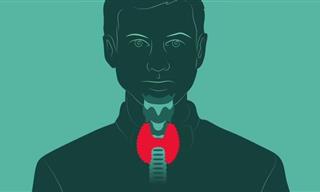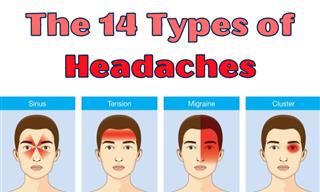1. Irritation 
Is there a connection between irritation, depression, and mental exhaustion? Well, according to Dr. Merali, they’re both intricately linked. He explains that when everything is going well in someone’s life, they don’t stress or worry about anything. However, when someone is unable to cope with certain things, whether it’s small or big, they begin to become irritated. The stress becomes too much for the individual and since it’s now part of their daily life, they stay irritated because they cannot break the pattern.
One of the reasons why this occurs is due to awareness of certain events. Dr. Merali uses a car accident as an example. He explains that certain events or places can be triggers to your mind. When you remember a certain place or event that was traumatic or stressful, you associate that with how it made you feel. Therefore, if you constantly have the same stress in your life, it will cause you to become emotionally and mentally exhausted.
2. Lack of Motivation
According to Dr. Merali, being unmotivated is part of mental exhaustion. He explains that the reason people become unmotivated in life is because of exhaustion. As an example, he makes a reference to someone who likes to run marathons – if you’re a sprinter or a runner who runs a marathon, you’re not going to feel like running once you complete it, and you’ll be depleted.
He says that mental and emotional motivation is the same thing. If you’re too tired to feel motivated, you will become unmotivated. In many cases of emotional and mental exhaustion, especially depression, Dr. Merali stated that anhedonia is often present. This is when people lose interest in activities that they used to enjoy and have also decreased their ability to feel pressure.
3. Sleeping Disorder

From Dr. Merali’s experience, sleeping disorders are a direct sign of depression and mental and emotional exhaustion. When he would ask someone when they first noticed that they might be depressed or mentally and emotionally exhausted, their response would usually be when their sleep started being disturbed.
He says that the reason why people cannot fall asleep when they’re suffering from depression or mental and emotional exhaustion is that their biological rhythm is disrupted. He also adds that depression can be associated with a seasonal affective disorder. This is when people become depressed when the clock shifts or the time changes and the day becomes shorter.
4. No Patience
As mentioned earlier, irritation, which can also include lack of patience, is a common sign of mental and emotional exhaustion. Dr. Merali refers to the age characteristic and how a lack of patience is common in younger people, whereas sadness is more prominent with someone who is much older. The reason why people often become irritated with their family and colleagues is that they are feeling overwhelmed. They don’t feel like talking because their mind is in a million different places and they can’t concentrate on one thing. The small things start to become big things and the big things become larger.
5. Disruption of Appetite

Our bodies have certain hormones and neurotransmitters, and when we become hungry, certain ones are produced. However, when the body has a hormonal imbalance, such as low levels of serotonin, it leads to the impaired functions of all the hormones and neurotransmitters involved in this process, which leads to a loss of appetite. Dr. Merali explains that ghrelin and leptin both play major roles in regulating your appetite, so when you have high levels of leptin in your blood, your appetite is reduced, and when you have high levels of ghrelin, your appetite is increased.
6. Sadness
As briefly mentioned above, sadness is something that is more associated with the older generation. Dr. Berali explains that the reason why people become sad when they’re depressed or mentally and emotionally exhausted is because they cannot handle the stress associated with it. When you’re emotionally and mentally exhausted, your mind is racing but you’re trying to make it stop. He adds that this overwhelming feeling causes people to break down and often cry until they become too tired to release any more emotion. People will often have low serotonin levels if they’re experiencing extreme sadness.
7. You Focus Inwards Instead of Outwards
Dr. Merali explains that someone who is mentally and emotionally exhausted will tend to focus on things that reflect them inside rather looking at the bigger picture. Everything becomes about them, even when it shouldn’t. He adds that people will isolate themselves from the rest of the world. In reality, being around people and talking is one of the best ways to treat mental and emotional exhaustion. However, those suffering from it, never see it this way. They see social interaction as another burden that will add to their stress.
Treating Depression and Mental and Emotional Exhaustion
According to Dr. Merali, medication and exercise are very good treatments for depression and emotional and mental exhaustion. However, he does add that when someone is experiencing either of these conditions, lack of motivation could be present as well, so it’s a lot easier said than done. He emphasizes that people need to try and get past this lack of motivation and understand that the physical health benefits of exercise and medication will not only help with their condition but can also help prevent other health issues.
 Go to BabaMail
Go to BabaMail























































